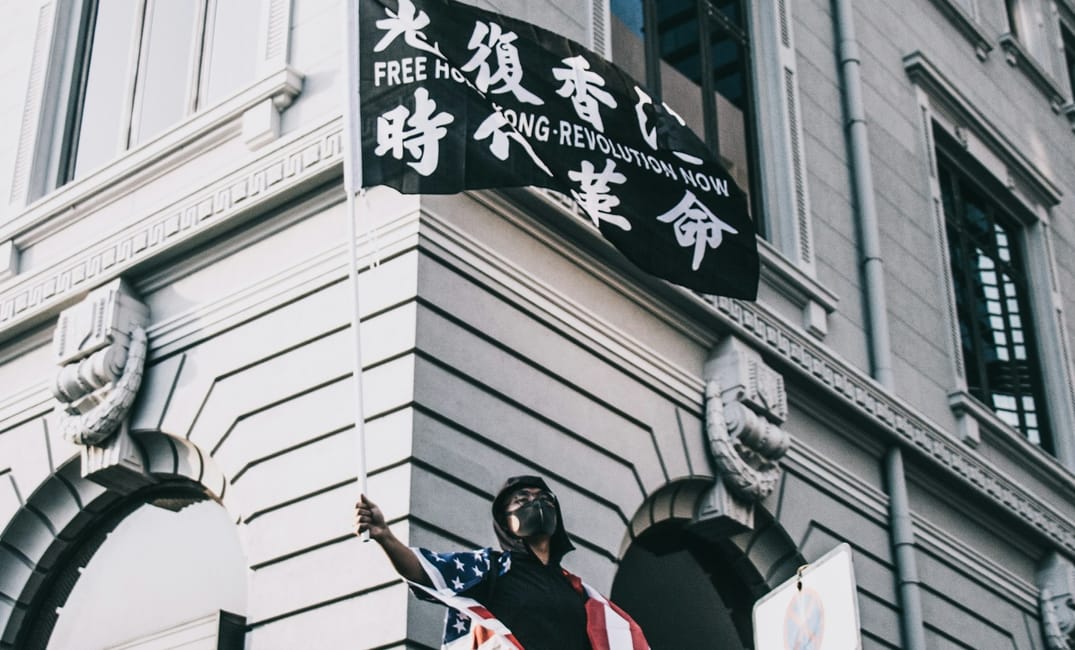Sam Gordon Webb
Naked Politics Blogger
Political stability is a rarity in Hong Kong. Recent protests over an extradition bill- allowing criminals to be extradited to stand trial in mainland China’s courts- have made any chance of it seem even slimmer.
2 million people joined the protests through the sprawling metropolis, the largest demonstration in the city’s history. Hong Kong’s chief executive Carrie Lam has offered to resign over the uproar. Feeling stuck, the prospect of a peaceful resolution is getting bleaker by the day.

The pressure is on Ms Lam to make amends for what can only be described as the biggest political crisis to have faced Hong Kong since achieving independence in 1997. But the handover of the region to China has far from quelled a mood of despair across Hong Kong’s pro-democracy supporters. British rule was certainly unpopular. But China is no better admired. Ms Lam’s urge to leave her post- possibly to escape scrutiny from her own citizens- was forcibly dispelled by Beijing officials this week.
The central premise of “one country, two systems” – China’s promise of semi-autonomy to its two formally colonised regions Hong Kong and Taiwan – hasn’t exactly been heeded upon. Most experts call it a “soft sell” and plenty see it as being under threat. The declaration which was signed after the 1997 handover clearly states that the territory is obliged to civic freedom as well as autonomy for at least 50 years. China’s desire to extradite criminals into mainland courts would kill the promise altogether.

Young protestors stormed Hong Kong’s Parliament last week in an act of defiance against a political system that they feel almost entirely detached from. As a result, plans to allow citizens of Hong Kong into the People Liberation Army- China’s armed forces- have been postponed at least until tensions ease. Xi Jinping, China’s authoritarian ruler, is taking no risks.
China has a history of silencing people. The 1989 Tiananmen Square- a student led protest on Tiananmen Square in Beijing- was quickly disseminated by police who fired tear gas on protestors and jailed supporters of the movement. China only released the final prisoner- held for throwing a basket at a burning tank- in 2016, 27 years later.
During protests held in the city on June 12 this year, the New York Times published a video which seemed to show local police using excessive force by tear gassing, beating and dragging protestors.
China’s influence over Hong Kong is already well established but what concerns many is the fact that it seems to be getting greater by the day. Infrastructure projects- such as the recent construction of a bridge linking Hong Kong with Macau and mainland China- are symbolic reminders of China’s increasingly hegemonic reign over the territory.
In 2014, Beijing released a policy white paper which gave the government “comprehensive jurisdiction” over the city and ruled out open elections for the post of leader. A nominating committee of 1,200 members – mostly made up of Beijing loyalists- make the crucial call. Prosecution of pro democracy campaigners and disqualification of some of the movement’s main political candidates is expected to continue. Ms Lam has already called the protesters “thugs” and “rioters”.
China is clearly retaliating. But not out of spite, rather fear. According to Willy Lam, a China expert at the Chinese University of Hong Kong, “they [China] will definitely seek revenge, otherwise they can’t justify themselves as an effectual regime”. Even after the bill was cancelled by Lam, critics remain convinced that it will be reimbursed in the near future.
Officials in Beijing have been quick to point fingers blaming uprisings on Western governments aimed at “stirring up trouble and provoking confrontation in an attempt to undermine Hong Kong’s peace and stability.” The U.S recently handed Taiwan US$2.2 billion (£1.7bn) worth of military equipment, angering the mainland. China’s reaction was to announce plans to operate military exercises close to the Taiwan strait in a clear sign of escalating tensions.
In 2016, the pro-democracy candidate Claudio Mo told British press that “Today Beijing talks about anti-independence, tomorrow it talks about anti-self-determination and the day after it can talk about anti-democracy altogether.”
She added that “ I’m very worried about the young who can’t afford to leave and have no choice but to fight on against extremely difficult odds. But we still need to fight, because if we don’t, we will definitely never get what we want.”
Young people in Hong Kong are clearly unsettled. In 2017 a report found that the ratio of young people in the region suffering from mental disorders and anxieties was higher than the global average. Medical experts quickly linked the mental health “epidemic” to Hong Kong’s uneasy politics. 4 deaths with suicide notes linking to the controversial extradition bill have already been recorded.
Mo spoke again recently, describing young protesters who took to Hong Kong’s streets as driven by “years of being treated as the enemy and being ignored”.
Hong Kong’s struggle for autonomy dates back years. Needless to say, it is a struggle that is far from over.

